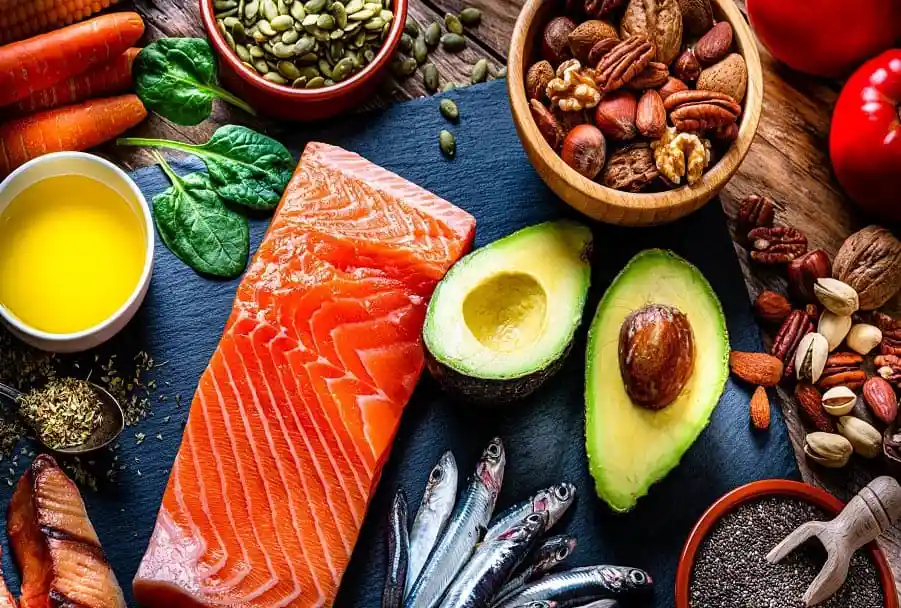In the intricate tapestry of nutrition, protein stands as a cornerstone, revered for its vital role in our bodies. Yet, amid the clamor for protein-rich foods, a silent concern often lurks: cholesterol. How do we revel in the benefits of protein without unsettling the delicate balance of our cholesterol levels? This article delves into the art of harmonizing protein intake with cholesterol management, offering insights, strategies, and practical tips to navigate this nutritional conundrum with finesse.
Amidst the cacophony of dietary advice, one truth remains steadfast: the delicate interplay between protein consumption and cholesterol management holds profound implications for our health. As we embark on this exploration, let us unravel the nuances, embrace the synergy between protein-rich foods and cholesterol management, and pave the path towards optimal well-being.
The Importance of Protein in the Diet
Protein serves as one of the fundamental building blocks of life. It plays a crucial role in various bodily functions, including muscle growth and repair, hormone production, and enzyme activity. Incorporating an adequate amount of protein into one’s diet is essential for maintaining overall health and well-being.
Lean Protein Sources: A Smart Choice
When it comes to protein consumption and cholesterol management, opting for lean protein sources is paramount. Lean proteins are typically lower in saturated fats, the kind of fats known to raise LDL (bad) cholesterol levels in the bloodstream. Examples of lean protein sources include:
– Skinless poultry (such as chicken and turkey)
– Lean cuts of beef and pork (like loin or sirloin)
– Fish (particularly fatty fish like salmon, mackerel, trout, and sardines)
– Tofu, tempeh, and other plant-based proteins
By choosing lean protein options, individuals can enjoy the benefits of protein without significantly impacting their cholesterol levels.
Embracing Plant-Based Proteins
For those seeking alternative protein sources or following a vegetarian or vegan lifestyle, plant-based proteins offer a cholesterol-friendly solution. Beans, lentils, chickpeas, edamame, and other legumes are not only rich in protein but also devoid of cholesterol. Additionally, they contain dietary fiber, which can help lower LDL cholesterol levels and improve overall heart health.
Omega-3 Fatty Acids: The Cholesterol-Lowering Heroes
Incorporating foods rich in omega-3 fatty acids is another effective strategy for managing cholesterol levels. Fatty fish such as salmon, mackerel, and sardines are exceptional sources of these heart-healthy fats. Omega-3 fatty acids have been shown to reduce triglyceride levels and lower the risk of heart disease. For those with concerns about cholesterol, consuming omega-3-rich foods can be beneficial.
Fiber: Nature’s Cholesterol Buster
Dietary fiber plays a pivotal role in cholesterol management. Soluble fiber, in particular, acts like a sponge, binding to cholesterol in the digestive tract and aiding in its excretion from the body. Fruits, vegetables, whole grains, oats, barley, and legumes are excellent sources of soluble fiber. By incorporating these fiber-rich foods into the diet alongside protein-rich options, individuals can help keep their cholesterol levels in check.
Cooking Methods Matter
How protein-rich foods are prepared can significantly impact their cholesterol content. Opting for healthier cooking methods such as grilling, baking, broiling, steaming, or sautéing with minimal oil helps minimize the addition of unhealthy fats. Avoiding deep frying, which can introduce excess saturated and trans fats, is particularly crucial for those concerned about cholesterol levels.
Moderation and Portion Control
While protein is undoubtedly an essential nutrient, consuming excessive amounts can lead to unintended consequences, including weight gain and adverse effects on cholesterol levels. Practicing moderation and portion control is key to maintaining a balanced diet and supporting healthy cholesterol levels. Paying attention to serving sizes and listening to hunger cues can help prevent overconsumption.
Lifestyle Factors: Beyond the Plate
In addition to dietary choices, certain lifestyle factors can influence cholesterol levels. Regular physical activity, maintaining a healthy weight, and avoiding smoking are all integral components of cardiovascular health. Engaging in regular exercise, achieving and maintaining a healthy weight, and abstaining from tobacco products can complement dietary efforts in managing cholesterol levels effectively.
Final Thoughts
In the pursuit of optimal health, balancing protein intake with cholesterol management is essential. By selecting lean protein sources, embracing plant-based proteins, incorporating omega-3-rich foods, prioritizing fiber intake, choosing healthy cooking methods, practicing moderation, and addressing lifestyle factors, individuals can enjoy protein-rich foods while safeguarding their cholesterol levels. With mindful dietary choices and lifestyle adjustments, achieving a harmonious balance between protein consumption and cholesterol management is within reach for everyone.
Your Journey Starts Now
Ready to embark on your journey to a healthier, happier you? Start by incorporating these tips into your daily life. Consult with a nutritionist or healthcare professional for personalized guidance, and together, let’s pave the way to a life of vitality and well-being.

